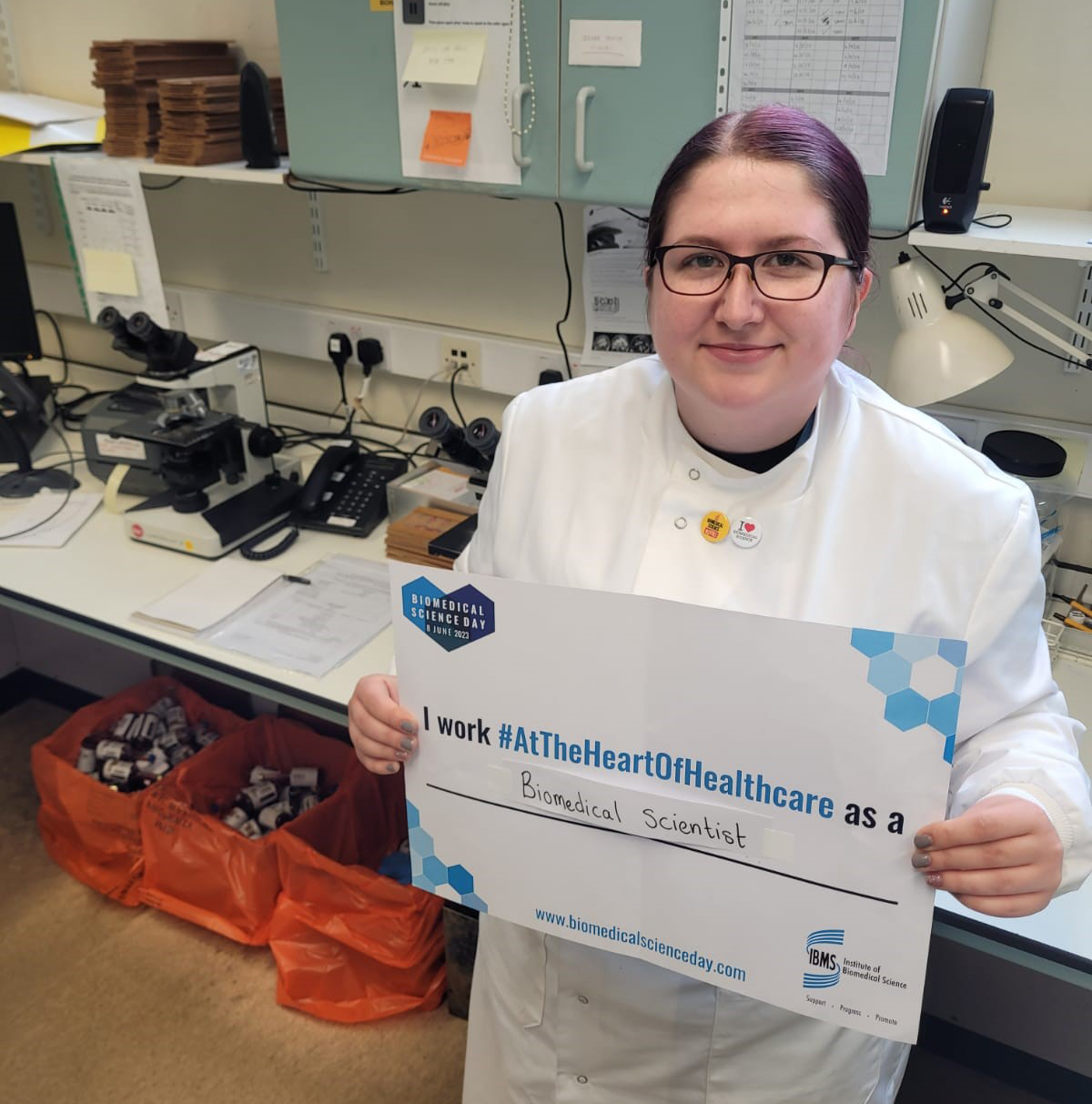
Current job title
Biomedical Scientist (Microbiology).
When did you start in the NHS?
2018.
Why did you choose to work in the NHS?
I knew I wanted to work in Medical Microbiology whilst doing my degree, as I found it interesting. The fact that there are organisms invisible to the naked eye that are capable of causing serious diseases is incredible. I wanted to work in the NHS to be at the heart of healthcare and make a difference, as pathology results account for over 70% of hospital diagnoses.
Describe what you do?
There are many different sample sections in a pathology microbiology lab. I’m still learning my way around them all as part of the portfolio I'm completing, to achieve the IBMS Specialist Diploma in Medical Microbiology. We receive patient samples from all over the body, including blood, faeces, urine, sputum, various swabs (bacterial and viral), tissues, sterile fluids and more. My role involves a variety of laboratory tasks, including performing and interpreting molecular techniques (e.g. PCR), culturing and interpreting agar plates and reporting antibiotic sensitivities, manual microscopy to do cell counts (e.g. white blood cells in a CSF to help diagnose meningitis), and checking and performing stains (such as Gram stain) to check for organisms. All of this is made possible with the help of Biomedical Support Workers and Associate Practitioners who help set up the majority of tests and keep up with general lab maintenance.
What do you enjoy most about your role?
I enjoy looking down the microscope and seeing another world and knowing that I'm making a difference in patient care. In microbiology, I love the variation of samples and how the interpretation changes from each bench, as the presence of one organism may be significant in one part of the body but not another. This is because we carry bacteria in our bodies as part of our "normal flora”, which in the right place in healthy individuals, should not cause any issues and can even be beneficial. There's one phrase that has always stuck from my microbiology lecturer (Merf) in University: "If you don't know your normal flora, you don't know anything!".
What would you say to someone thinking about a career in the NHS?
The NHS is a wonderful place to work as it allows you to help patients (not just ward based) and learn about your interests by taking part in continuing professional development (CPD) activities. When I started, I was a Biomedical Support Worker, but I was able to work my way up by completing the IBMS Registration Portfolio to become HCPC registered before securing my current role. I would not be where I am today without the support of my colleagues and managers, and the many opportunities they've helped me take part in such as attending lectures and training programmes outside of work.
How would you describe the NHS in one word?
Collaborative.
